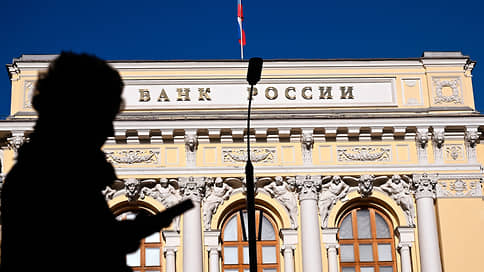The Central Bank evaluates options for the exchange of Russian and foreign assets
[ad_1]

The Central Bank is considering creating a pool of Russian holders of securities abroad and exchanging them for assets of non-residents placed on type C accounts, including those with a premium. At the same time, the amount of “frozen” Russian market assets is less than that of non-residents. In addition, lawyers say the exchange process complicates the need to obtain permits and licenses from both sides.
First Deputy Chairman of the Central Bank Vladimir Chistyukhin at a meeting of the Committee on Budget and Financial Markets of the Federation Council said that the regulator is working on the idea of pools of holders of blocked securities for the subsequent sale of these assets to non-residents. With this approach, according to Mr. Chistyukhin, Russian holders of foreign securities “could exercise their will to sell their securities.” The Bank of Russia declined to comment further.
A year ago, the Central Bank considered the possibility of creating a specialized fund, including for investors to have the opportunity to exit the “frozen” assets. Since then, however, anti-Russian sanctions have been systematically tightened.
At the end of 2022, Euroclear and Clearstream announced that they were accepting orders to unlock foreign securities until January 7, provided that their ultimate holder is an unsanctioned person (see Kommersant of December 21). Such instructions were submitted by most of the major brokers, but as of June, no cases of a positive decision on them are known.
A year ago, the Central Bank estimated the volume of blocked Russian assets in the accounts of NSD at 6 trillion rubles. At the same time, according to NSD’s reporting, as of April 1, 2023, the amount of funds on type C accounts in the DIA was estimated at 477 billion rubles. On the same date, the Central Bank valued OFZs owned by non-residents at 1.76 trillion rubles, sovereign Eurobonds at $16.1 billion (about 1.25 trillion rubles). These investments concerned investors from friendly and unfriendly countries, as well as securities deposited in foreign depositories.
According to Mr. Chistyukhin, the assets of Russian investors can be exchanged for funds of non-residents held in type C accounts. And not at a discount, but at a premium. “The funds that ended up on type C accounts have been reserved by many foreign persons for a long time. That is, they are actually worth zero for them. In this sense, getting at least something is already a big plus, ”he explained.
According to Dmitry Alexandrov, managing director of Ivolga Capital, in this case we are actually talking about the sale of money and assets blocked on type C accounts for blocked foreign securities. As a result, “unfriendly” non-residents will receive foreign assets, while Russian participants will receive money directly (and possibly Russian assets). Technically, according to Mr. Alexandrov, the blocked securities are already isolated within the internal accounting of banks and brokers. “They can be combined, for example, into a separate mutual fund and make a symmetrical operation with balances on type C accounts. And then exchange shares of such mutual funds,” the expert believes.
However, both the Central Bank and market participants call the task of selling blocked assets “very difficult to perform.” “The options for the exchange and the outline of the whole action are difficult to determine, since permissions or licenses from both parties are required, and this process is not fast,” says Denis Krauyalis, junior partner at the Yakovlev & Partners legal group. The difficulty stems from the fact that such an exchange still requires the consent of local regulators to unlock the accounts of specific users, at least in relation to securities on Euroclear and Clearstream accounts, adds Ekaterina Makeeva, partner and head of the sanctions practice at A-PRO.
The most promising are negotiations with investment banks and other financial institutions that have assets in Russia and on whose accounts there are securities of Russians.
“An example of the argument in such cases can be the decision of the British court in the Sova Capital case, where the court essentially approved the exchange of debt to a significant creditor for assets that are illiquid for a British company in order to protect the interests of other creditors,” says Ekaterina Makeeva. In April, Sova Capital Limited transferred a portfolio of Russian securities (£274m) to the holding company Dominanta (the main owner of the Rossium concern) in exchange for waiving the right to claim the debt (£233m). Permission for the transaction from the Russian government was received on January 11, 2023, and the British court allowed the transaction on March 6.
[ad_2]
Source link





